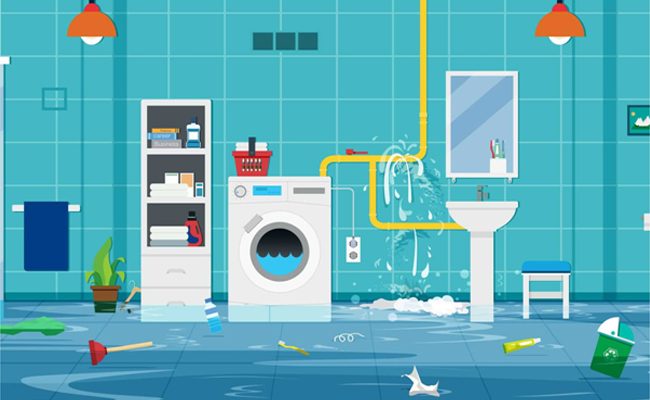
Plumbing emergencies are unexpected and often disastrous events that can cause significant damage to your home or property. Burst pipes, clogged drains, leaking water heaters, sewage backups, and gas leaks are just a few examples of the most common plumbing emergencies that homeowners face. Knowing how to react in such situations and taking the necessary steps to minimize the damage is essential. This article will discuss how to react to plumbing emergencies, what to do before and after the plumber arrives, and preventative measures to avoid such emergencies.
How to react to the plumbing emergency and save the control
Emergency plumbing issues can cause a lot of stress and panic, but the first step is to stay calm and assess the situation. Knowing how to react can make all the difference in mitigating further damage. For example, if you have a burst pipe, immediately turn off the main water supply to prevent further flooding. If you smell gas, turn off the gas supply and ventilate the area immediately. By reacting quickly, you can limit the extent of the damage and ensure the safety of your property and family.
Calling the plumber
The next step is to call a professional plumber. Don’t try to fix the disaster yourself, because its liquidation may require the specific skills. An emergency plumber has the expertise and equipment to fix the problem quickly and effectively. It is crucial to have the contact information of a reliable plumber on hand so that you can call them immediately in case of an emergency. When calling the plumber, explain the situation in detail so they can come prepared with the necessary tools and equipment to fix the issue. https://pomplumbing.ca/plumbing-services-scarborough/ is your guide among the professionals in your city.
Waiting for the plumber
While waiting for the plumber to arrive, taking some additional steps to minimize the damage is essential. For instance, collect any important information related to the issue, such as where the leak is located, the type of plumbing fixture involved, and the time the emergency occurred. This information can help the plumber diagnose the problem more quickly and efficiently.
In addition, it is vital to mitigate further damage to your property. For instance, if you have a leaking water heater, turn off the power supply and drain the tank to prevent further flooding. If you have a clogged drain or toilet, stop using any plumbing fixtures in the affected area to avoid causing more damage. Keep the area clean and dry to prevent mold growth or other issues.
After fixing the plumbing problem
Once the plumber fixes the problem, inspect the area for any damages. Look for any signs of water damage, such as discoloration or sagging drywall, and check for any leaks or drips. If you notice any issues, take care of them immediately to prevent further damage.
After the plumber leaves, cleaning up any mess created during the repair process is essential. Wipe down any surfaces that may have come into contact with water or sewage and disinfect the area to prevent the spread of germs. Proper cleaning can help prevent mold growth and other issues.
How to prevent plumbing failures in future?
To prevent future plumbing emergencies, it is crucial to take preventative measures. Regular maintenance of your plumbing systems can help identify and fix any issues before they become emergencies. For instance, flushing your water heater annually can prevent sediment buildup and extend its lifespan. Proper use of plumbing fixtures, such as not pouring grease or oil down the drain, can also help prevent clogs and backups.
Prompt repairs of minor issues can also prevent larger emergencies. For example, a small leak in a pipe can eventually cause it to burst, resulting in significant water damage. By fixing the problem when it is still small, you can avoid a more expensive and time-consuming repair in the future.
In conclusion, plumbing emergencies can cause significant damage to your property and be a source of stress and panic. Knowing how to react in such situations can help minimize the damage and keep your home and family safe. You can ensure that your plumbing system works by calling a professional plumber, taking preventative measures, and reacting quickly to emergencies.
Leave a Reply